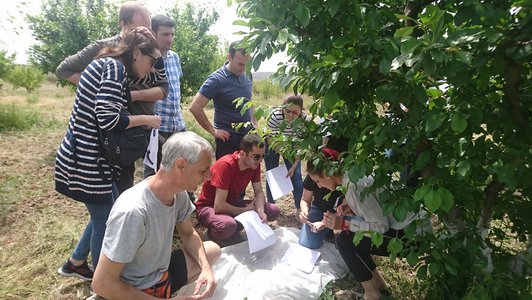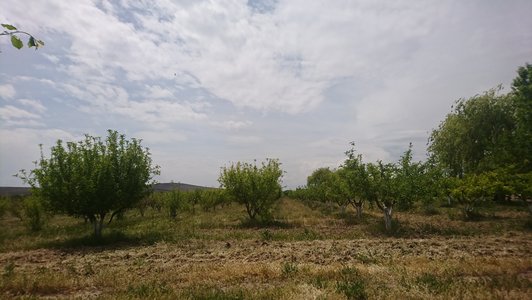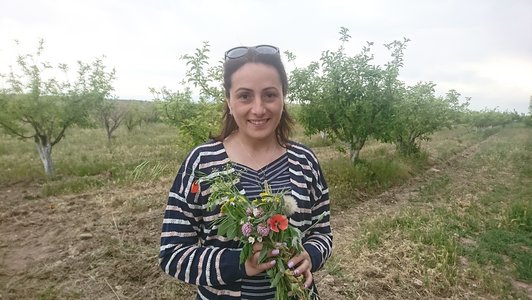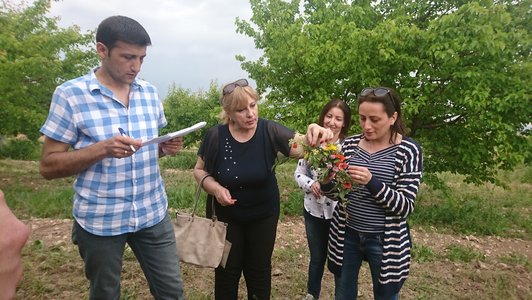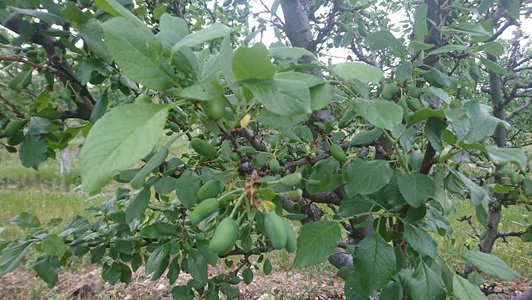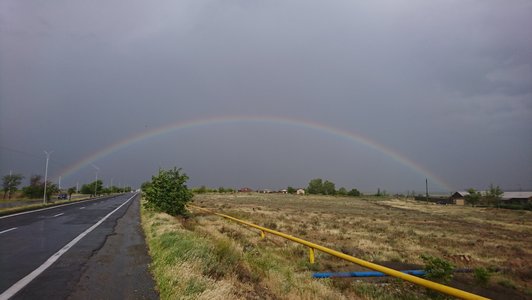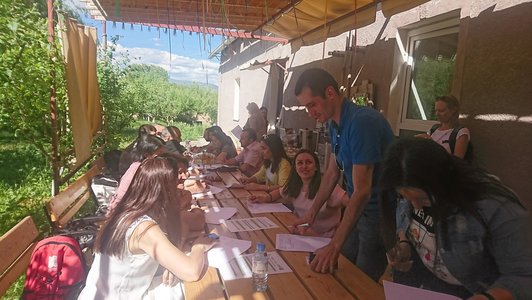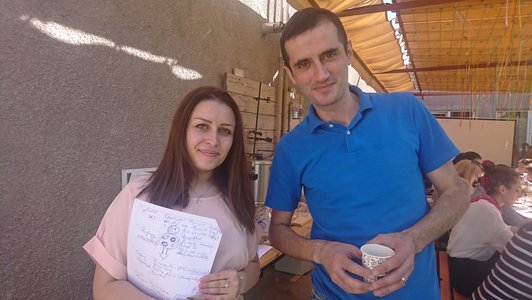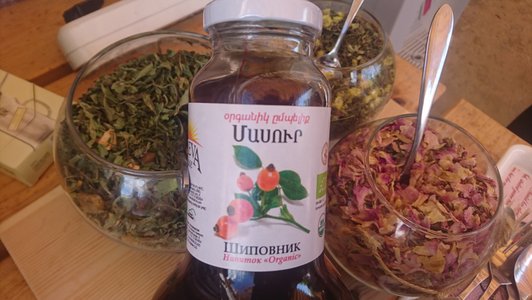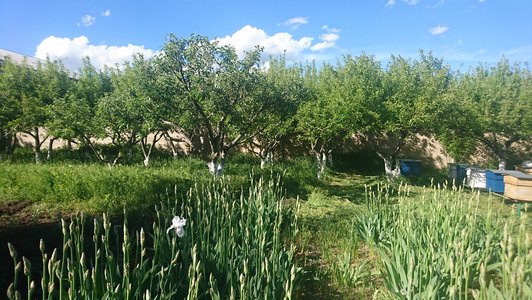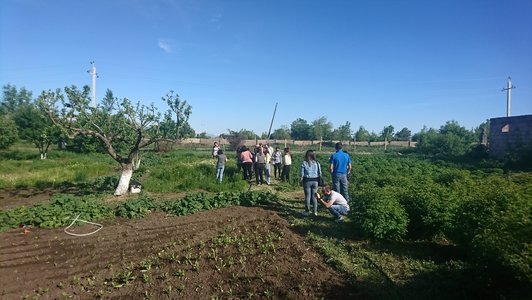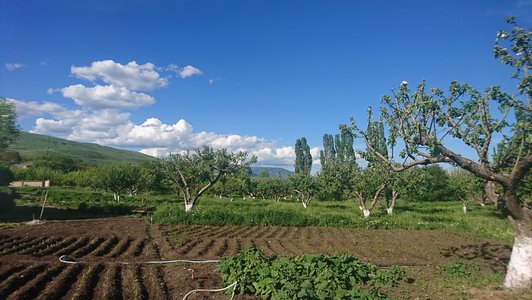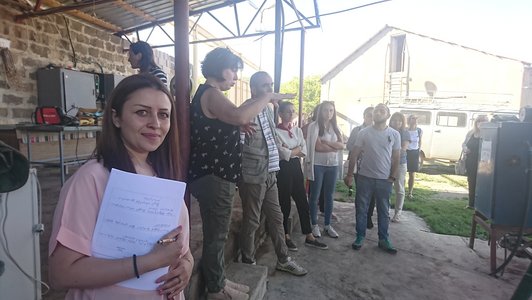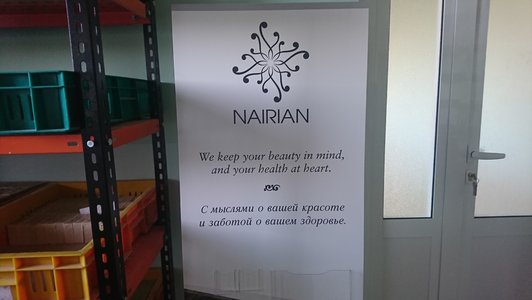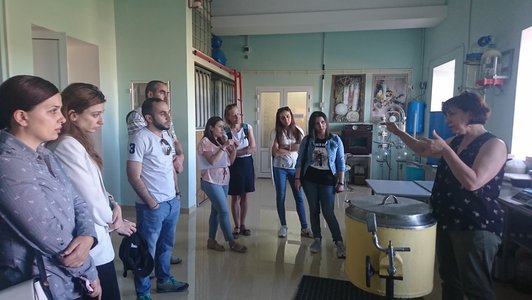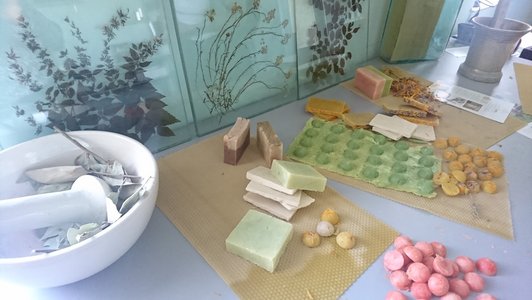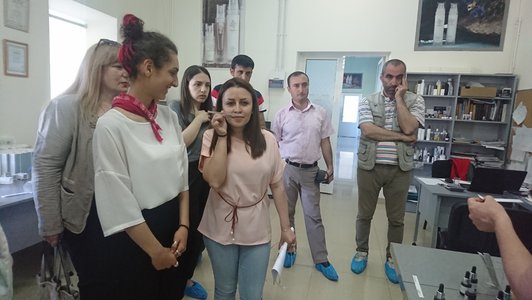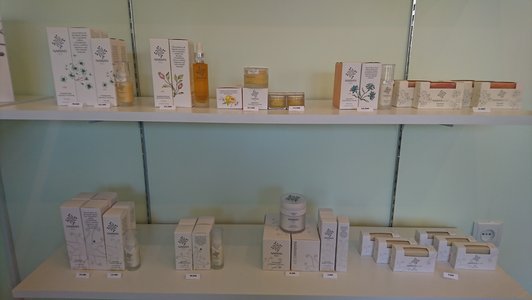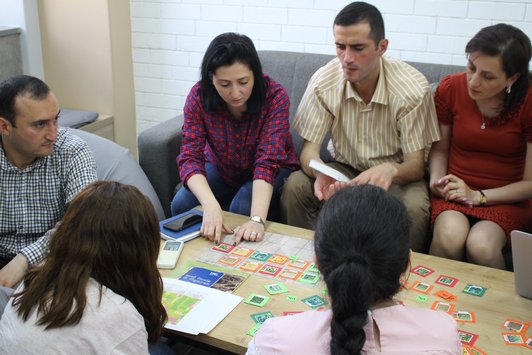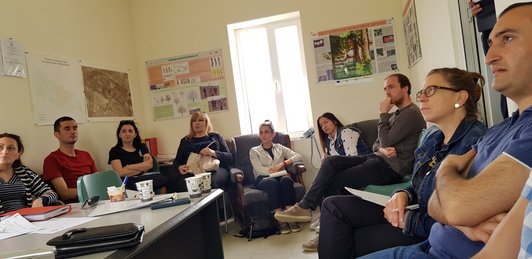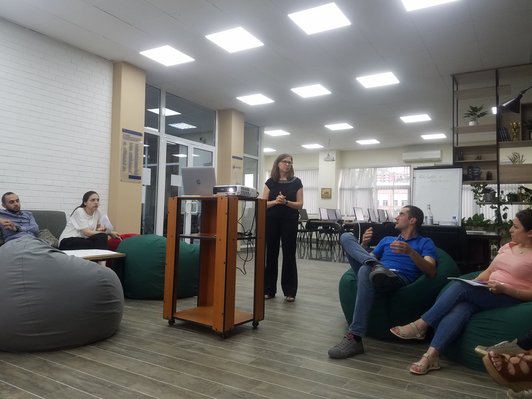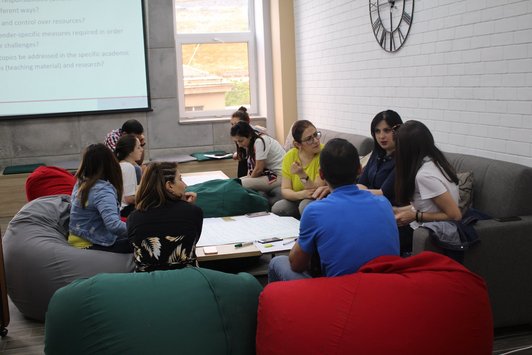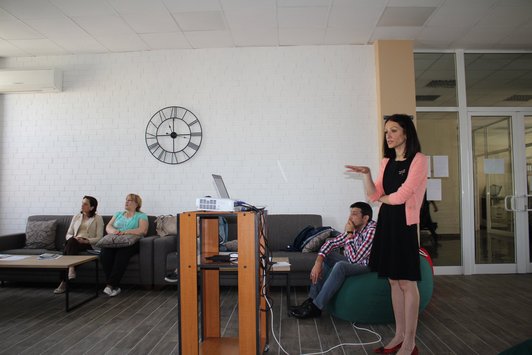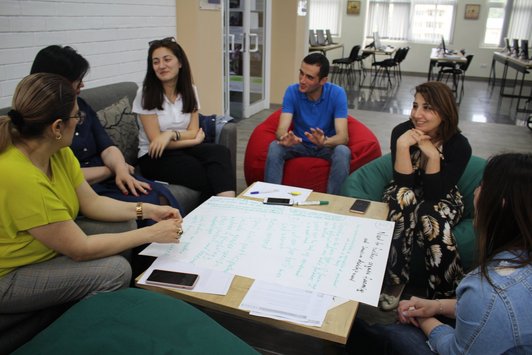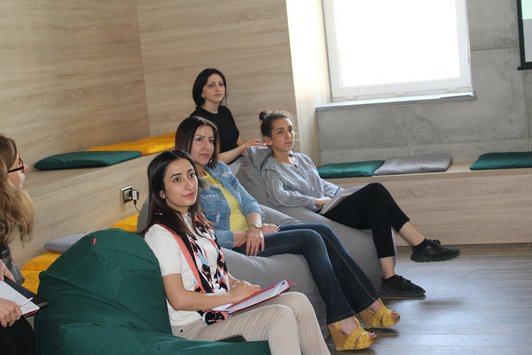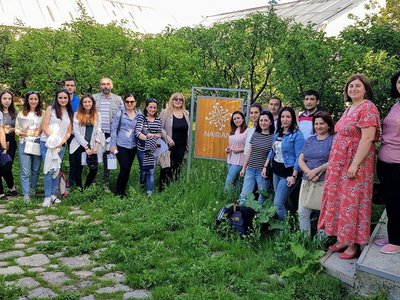

From May 20th to 24th four representatives from the University of Natural Resources and Life Sciences (BOKU) as well as one representative from APPEAR conducted a training of their respective topics including both theoretical and practical inputs. 12 lecturers and 2 students from Armenian National Agricultural University (ANAU) participated in the training, covering topics from crop rotation, conversion in organic farming, crop production, green manure and the role of legumes in organic production, fruit and nut tree production, the regulatory framework of organic farming, to gender issues in education and research. The lecturers particularly enjoyed learning hands-on teaching methods. Some examples of such tangible exercises included using a scale and beanbags representing different crops to simulate crop rotations; going into the field to examine the important role of legumes in organic agriculture; visiting an apricot orchard to examine the types of insects and their benefits or hindrances on the crop; and exercises discussing labelling and regulation issues in organic certification. Finally, the gender workshop created a safe and open space to consider gender discrepancies around the globe as well as in Armenia and particularly in agriculture and education. Gohar Shahnazaryan, Director of the Center for Gender and Leadership Studies at Yerevan State University, was also invited to give a presentation on the current state of gender equality in Armenia and respective research projects that the Center implements. The workshop allowed the group to grow together in understanding gender issues and how to be sensitive to these issues while teaching and in research, and share them with their students as well as their role in organic farming. We would like to give a big thanks to Martin Sieringer, Elke Stinnig, and Professors Andreas Spornberger, Reinhard Neugschwandtner and Christian Vogl to make this week so successful. The information they shared with our group of lecturers was invaluable and their impacts will be felt in the curriculum and program for years to come.
After this weeklong training, another stakeholder committee event was hosted at Nairian organic cosmetics. Not only was a tour given at this fellow stakeholder’s establishment, but there was time for BOAA coordinators to bring stakeholders up to date with the project and more importantly to connect lecturers with organic practitioners to specifically work on stakeholder integration within their classroom and coursework. A ''speed dating'' format was used during the meeting with the stakeholders. The goal was to find appropriate partners to help add real-world examples within their teaching by creating meaningful relationships and connections to the Armenian organic sector. 10 organic stakeholders participated in the event.
The next steps in the final year of the project are to finalize course materials and teaching documents as well as raise awareness and advertise the master program on organic agriculture itself.

